How Do Cats Mark Their Territory? 🐾

Cats are mysterious creatures with a rich set of behaviors that often leave us scratching our heads. One such behavior is territory marking. Cats mark their territory to communicate with other cats and establish their domain. ![]()
In this article, we will delve into the three main ways cats mark their territory and what you can do if this behavior becomes problematic.
Urine Marking 💦
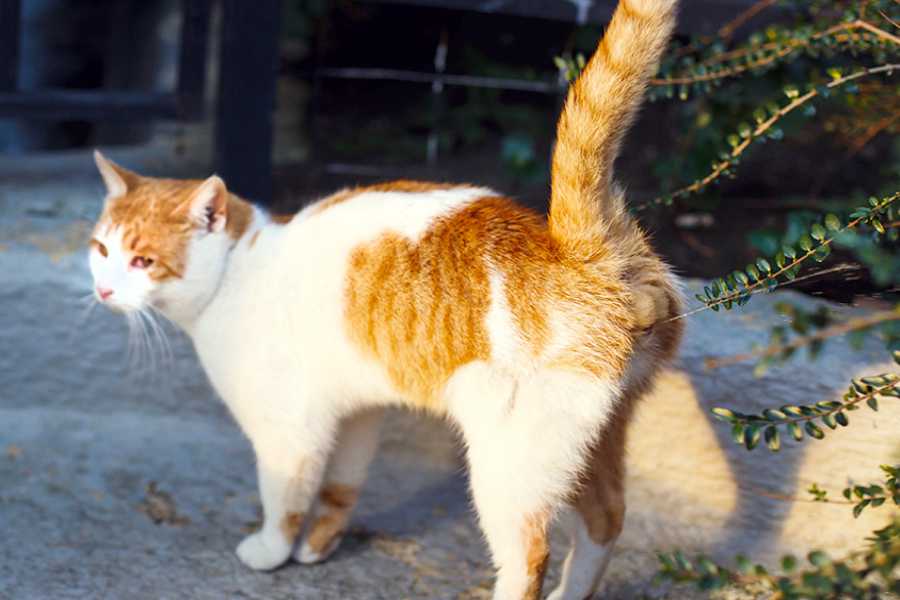
Urine marking is one of the most common and noticeable ways cats mark their territory. Cats’ urine contains a wealth of olfactory information in the form of pheromones. These pheromones are detected and processed by a special structure in the cat’s nose called the vomeronasal organ. This organ allows felines to understand the sexual or health status of other animals, among other information.
When a cat marks with urine, they raise their tail to a fully erect position and move it rapidly while releasing small droplets of sprayed urine on a vertical surface.
This behavior is carried out by both male and female cats, although it is less common in females. Urine marking is a significant way cats communicate with each other, especially during mating season. You can learn more about this in our article on what does a cat do when in heat.
Paw Marking 🐾
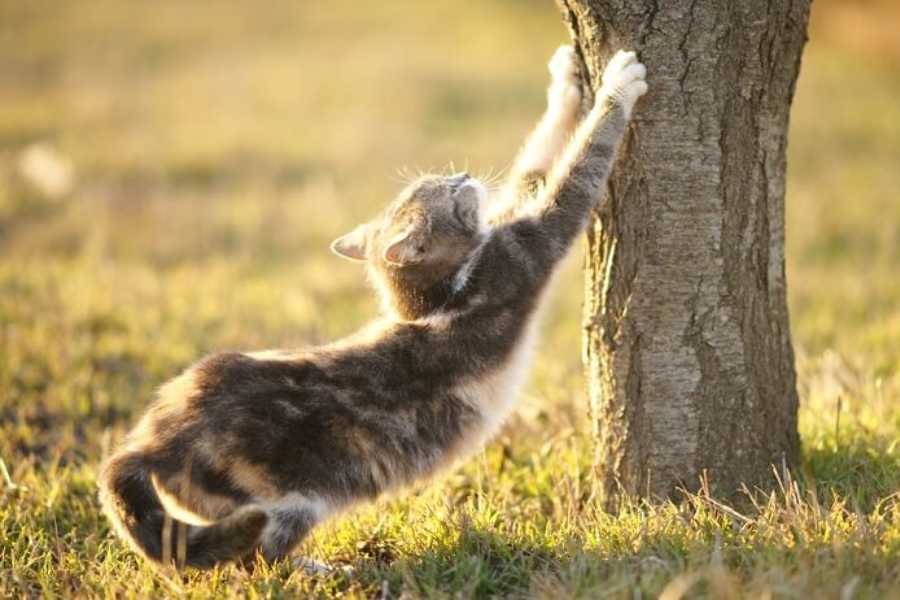
If you’ve ever been a cat parent, you’ve likely noticed your feline friend scratching certain elements of your home, such as sofas, chairs, or trees in the garden. This scratching is not just a way for cats to condition their nails; it’s also a method of territory marking.
Cats have glands in their paws that produce scent markers. So, when a cat scratches a surface, they are leaving both visual and olfactory markers. This dual marking method is a powerful way for cats to claim their territory. Providing your cat with a scratching post can help redirect this behavior and save your furniture. Check out our article on how to deal with cat shedding and shredding.
Facial Marking 😺
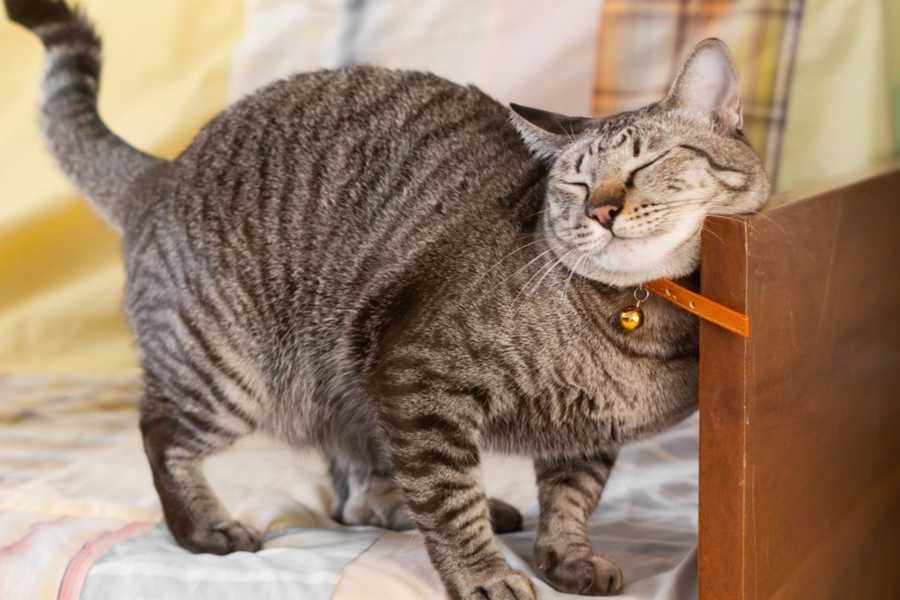
The last type of marking we’ll discuss is facial marking. Cats perform this type of marking when they rub their face against something or even someone. This behavior usually occurs when cats feel calm, as it’s a way of marking the territory as safe. ![]()
By leaving a chemical scent, they show they feel comfortable in the situation. When they rub their face against yours, it’s a clear signal they feel secure and comfortable in your presence. Facial marking is a sign of affection and trust from your cat. You can learn more about this behavior in our article on do cats like kisses.
What to Do When a Cat Marks 🤔
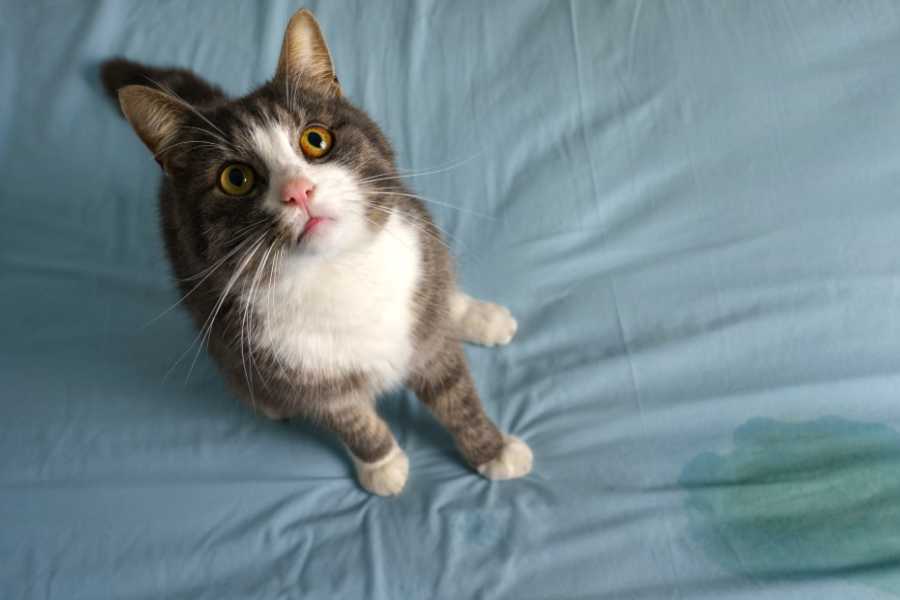
Although it can be very unpleasant when our cat sprays urine inside the home or scratches the furniture, marking is a totally natural behavior in cats. They do it even when they don’t live with other cats or when there is barely a possibility that other animals will invade their territory.
For this reason, it’s ineffective and counterproductive to punish them for it. However, this doesn’t mean it is not sometimes problematic. There are ways to reduce the frequency with which the feline carries out these behaviors, depending on the type of marking and its purpose. Some will be more effective than others. Let’s see the possible solutions.
Sterilization 🏥
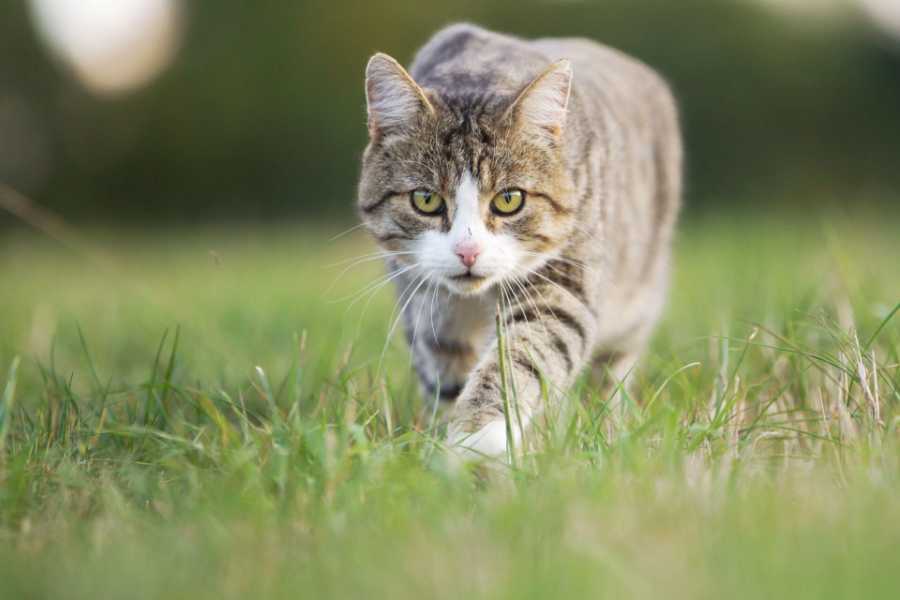
The removal of a cat’s sexual organs is a very effective solution in reducing territorial marking. This is because the cats will no longer need to mark to signal for a potential mate.
Eliminating sexual hormones in this way not only reduces marking, it helps with other issues related to feline reproduction such as unwanted kitten litters, cats running away in an attempt to mate, aggression, and others. ![]()
Neutering needs to be carried out at the appropriate time and in the right circumstances, so consult your veterinarian if your cat is not yet neutered. You can find out more about neutering cats in our article on why cats should get neutered.
Synthetic Pheromones and Enriched Environment 🌿

Marking that takes place as a result of stress is not eliminated by neutering. This is achieved by providing the cat with an enriched, calm, and stable environment where they can feel safe.
Methods of creating such an environment include using synthetic feline pheromones, providing scratching posts, installing platforms at various heights for climbing, or even using boxes as a place for the cat to hide if they feel insecure.
Of course, we should never punish the animal for urinating or scratching the furniture, as we can further increase their stress levels. Creating a safe and comfortable environment for your cat can significantly reduce stress-related marking.
Veterinary Consultation 🩺

Finally, bear in mind that urine marking is not the same as inappropriate urination. The latter occurs when the cat urinates in places other than the litter box. If you notice your cat begins to pee more frequently than usual or they do so in inappropriate places, consult your veterinarian to rule out possible pathologies such as a urinary tract infection.
Understanding your cat’s behavior is crucial to maintaining a healthy and happy relationship with them. If you want to continue learning about the behavior of cats, don’t miss our other articles on cat behavior.
Wrapping Up 🎯

Understanding how cats mark their territory is crucial for any cat owner. It helps us better understand our feline friends and their behaviors, and it allows us to create a more comfortable and stress-free environment for them.
Remember, marking is a natural behavior for cats. It’s their way of communicating with other cats and establishing their domain. While it can sometimes be problematic, especially when it involves urine marking inside the home or scratching furniture, there are ways to manage and redirect this behavior.
Whether it’s through sterilization, creating an enriched environment, or seeking veterinary consultation, you can find a solution that works for both you and your cat. And remember, never punish your cat for marking. It’s a natural behavior that they use to communicate and feel secure in their environment. ![]()
Tags
Share
Table Of Contents
Related Posts
Quick Links

